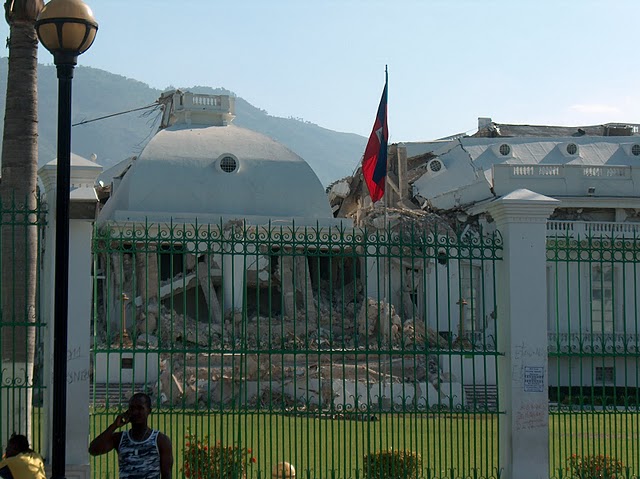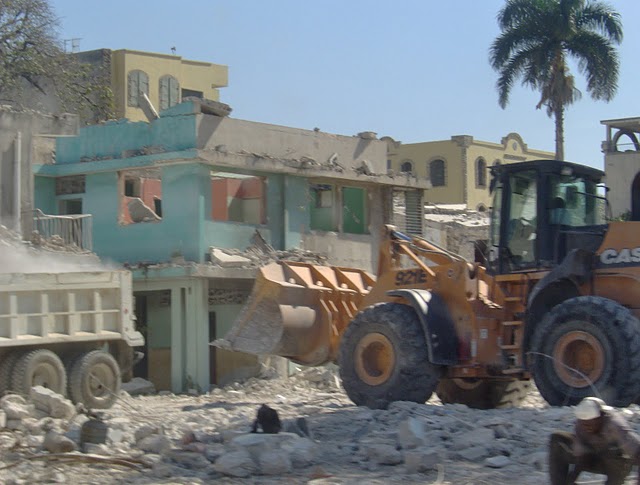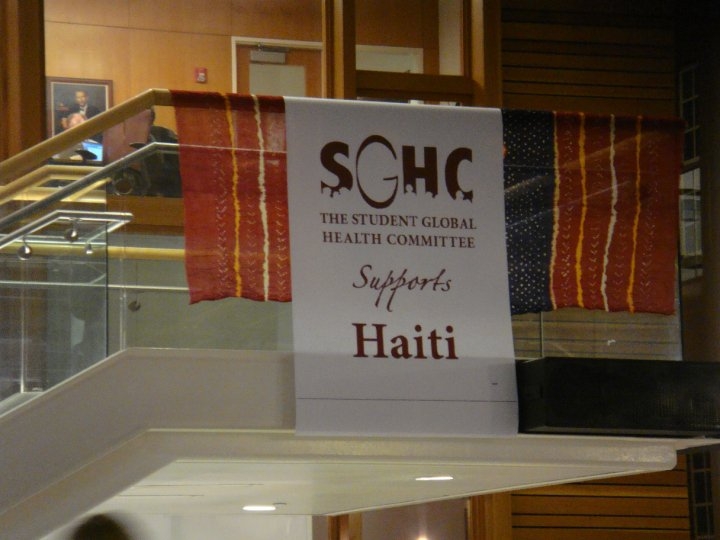| March 12, 2010 | |
|
By Y. Koltun

The Capitol building in Port au Prince, Haiti.
On the afternoon of January 12, 2010, a 7.0 magnitude earthquake devastated Haiti, a small and impoverished country of approximately nine million located on the island of Hispaniola. The quake occurred along the Enriquillo-Plantain Garden fault, between the Caribbean and North American tectonic plates, approximately 16 miles west of the capital city, Port-au-Prince. Though the reported death and injury estimates vary greatly between sources, the Haitian Government is approximating 230,000 deaths and 300,000 injuries. It has also been estimated that one million Haitians have been rendered homeless by the disaster.

Debris being removed after the earthquake in Haiti.
Upon newsbreak, immediate response to the disaster was generated within the UNC Gillings School of Global Public Health. Rosenau room 230 was set up to screen coverage of the event all day to ensure awareness among the SPH community. Several student organizations on campus called emergency meetings, organizing events to raise funds and collect supplies for those affected by the tragedy. In an attempt to unify campus efforts, Jeff Nyugen, a master’s student in Health Policy and Management and current SPH student government co-president, submitted a letter to the Daily Tar Heel calling not only for student and faculty awareness, but also for communication and collaboration between the different groups leading fundraising and response activities. The School created a website to foster communication of all on-going efforts. In addition to advocating for an alliance of student efforts via the website, student government worked to promote effective donation practices. “It was important for us that students donate to reliable organizations that help the people of Haiti directly and not organizations where the money would go to them,” insists Nguyen.
On February 4th, 2010, Student Government collected donations from students at the Spring Happy Hour held at Bub O’Malley’s Pub. The informal event raised $150, which was donated to Partners in Health, an international organization that has been working in Haiti for over 20 years to provide sustainable medical care to those without access.

Proceeds from the annual “Fashion Show Your Love” benefited Doctors without Borders in Haiti.
To raise money for disaster relief and rebuilding efforts in Haiti, the Student Global Health Committee dedicated their annual Global Health Fashion Show to the cause. The event, held in the Michael Hooker Research Center atrium on the evening of February 11th, 2010, featured students and faculty modeling clothing from around the world. The red-carpet fashion show was attended by 150 people who stayed to enjoy the food, music, dance performances and silent auction featuring purses and artwork from around the world that followed. The event raised $1,565, all of which will benefit Doctors without Borders, a well-established organization that not only is experienced in disaster management, but also has a long-standing work history with Haiti. “For us the Fashion Show is a wonderful opportunity to showcase the diversity of the School of Public Health and the global reach of our programs and research by both faculty and students. We were honored this year to be able to contribute towards the recent disaster in Haiti, and it was amazing to see the support for the event by local businesses, families and friends of the university,” said Juliana Thornton, a master’s student in Maternal and Child Health and executive co-chair of the committee. |
Yulia Koltun is a Senior BSPH student in Nutrition. She works in the SPH Office of Student Affairs as a Student Assistant.
